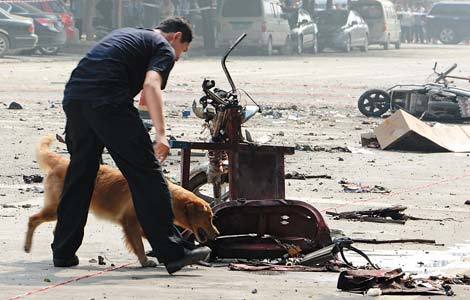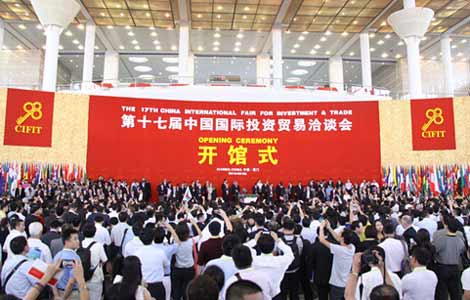Politicized labels leave no room for reason
Updated: 2013-09-10 07:19
By Zhu Yuan (China Daily)
|
||||||||
Do we have a precise word or phrase to describe those who were born after the year 1990?
Is it possible to have a label that can cover the general characteristics of a generation?
I have been obsessed with both questions since a week-long trip I had with a group of university students in July. Most of them were born in 1990 and some even later. My knowledge about them by seeing what they have done, reading what they have written and talking with them has changed my preconceptions about this emerging generation.
Most of them are hardworking, thoughtful and considerate, very different from the impression I had of their generation from descriptions both online and in the print media. The post-90 generation is usually epitomized as being egoistical, oversensitive, rebellious, weak psychologically and pretentious.
Such preconceptions can blind us to the diversified character of a person or essence of a thing. It is dangerous to judge an individual person simply by believing what a general label may suggest about a group of people.
What has alerted me even more is the rising trend I can sense from some stories, which tend to label people with what they have said or written as belonging to liberalism or conservatism or a school with certain ideas.
Many people of my age may still remember that political labels such as landlords, capitalists, rightists, counter-revolutionaries or even historical counter-revolutionaries were stigmas, which put the people who bore these labels in an inferior social position. Political persecution and political bias reduced these people and even their family members to a miserable state in the years before 1978.
Of course, those days have long gone. But the residue of labeling people can still find expression in the way some people always tend to ascribe a kind of trait to a particular group of people. The labels those who were born after 1980 and after 1990 get are a case in point.
The most noteworthy instance is the label henanren, which turns out to be a stigma of dishonesty or shrewdness for people from Central China's Henan province. It is definitely unfair and unjustifiable to stick such an insulting label on people from a particular locality simply because of a number of fraudulent cases involving people from that place.
It is far too common for people to have preconceptions about a group of people just because of the labels on them, and there are indeed instances of people form Henan being denied the chance of doing business or landing a job because of people's preconceived ideas about them.
It is far too natural for good people and bad people to exist in every locality and so it is for able people and good-for-nothings to come from every generation and everywhere.
Even with scholars who are usually labeled as conservative or liberal-minded, it is not necessarily accurate when it comes to how he or she thinks on a particular problem.
The most dangerous thing about labeling people and certain kinds of matter is to politicize or inject ideological bias into some otherwise neutral labels as we did in the 1960s or 1970s.
The post-1990 generation should just refer to people born after 1990 and the label of the post-1980 generation should just refer to people born after 1980. A landlord is just a person in possession of some land and a capitalist in possession of an enterprise and it should have nothing to do with the question of whether they are good or bad.
Some people may still have to change the habit of making assumptions about people and things just on the neutral labels they wear because of the inertia of political movements in the past.
But it is really problematic when some make similar assumptions in their articles from the premise that a particular neutral label may have ideological connotations according to them. By doing so, they leave no room for reasoning. Which is the sole prerequisite for fair public discourse about anything.
It is not only a matter for academia. The more people are accustomed to making assumptions through labels or preconceptions, the more difficult it is for things to be done in a reasonable manner. The most absurd example of such an assumption was the slogan: "We would rather keep weeds that are proletarian in nature than seedlings that are capitalist in nature."
Serious discussion about something in a reasonable manner is the prerequisite to do a good job about it. That was the very basis, on which the opening-up and reforms were initiated at the end of the 1970s.
The author is a senior writer with China Daily. zhuyuan@chinadaily.com.cn
(China Daily USA 09/10/2013 page11)
Most Viewed
Editor's Picks

|

|

|

|

|

|
Today's Top News
Is Alibaba using a 'negotiating ploy' with HK?
Diplomacy gets under way on Korean front
China loses nearly 20% of grains
China's premier warns on Syria
Trending news across China
AIDS is biggest killer among infectious diseases
China vaults to world's 3rd-largest investor
War could derail global recovery
US Weekly

|

|














